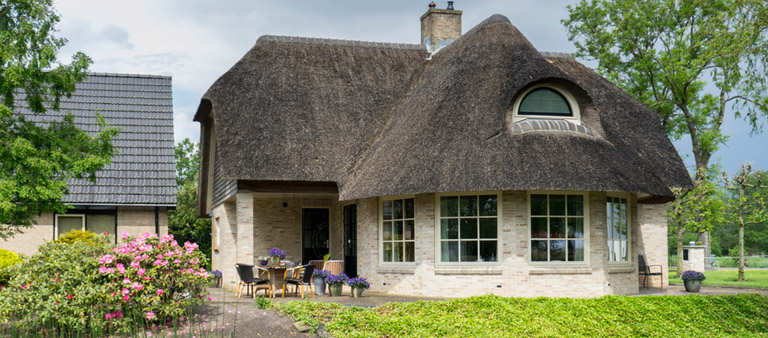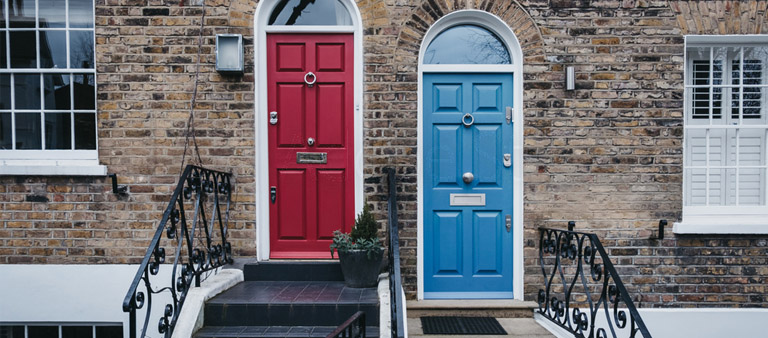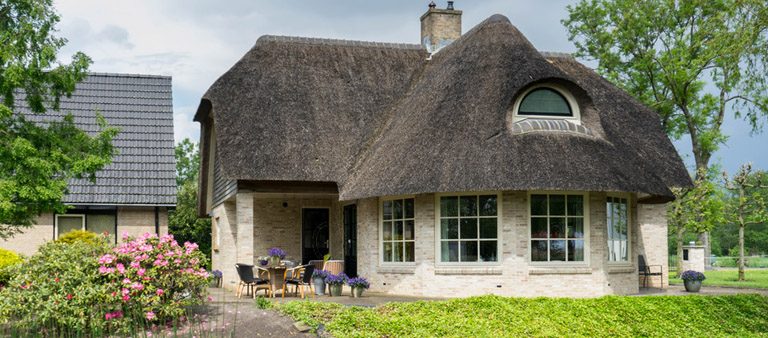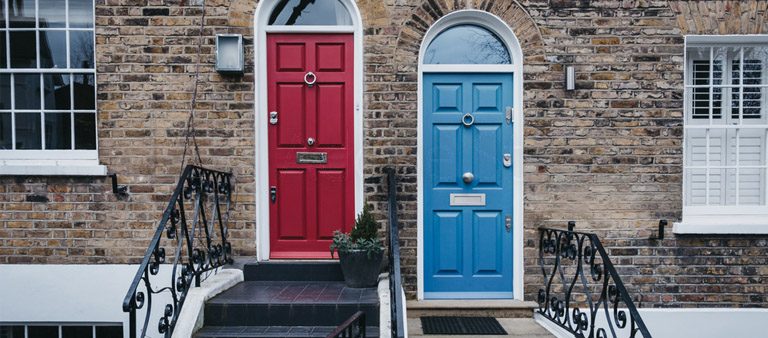9 out of 10 commercial property owners will be eligible for a sizeable tax credit due to unused capital allowances
What are capital allowances for commercial properties and how do they benefit me?
Tax relief that assists in lowering your future tax liabilities or more importantly generates a tax refund for 2 previous years.
Over a £ billion worth of capital allowance claims still remain unclaimed by property owners. Recognising qualifying assets embedded within a commercial property requires a specialist team of tax experts and surveyors to spot missed unclaimed capital allowances, that can generate substantial tax refunds and future tax credits for many years.

What items are claimable within a commercial property?
There is not a clear-cut list of what can be claimed but here is a list of the most commonly claimed items:
Air conditioning
Heating systems
Ventilation systems
Security systems
Lifts
Electrical systems
Fitted furniture
Who can claim capital allowances?
Commercial property owners may be entitled to up to 40% capital allowances associated with the acquisition cost of the property. There is no time constraint placed on claiming capital allowances for historic expenditure as long as, you still own the property. Therefore, if you acquired a commercial property in the ’1980s, the ’90s or sold it within the last 2 years, you may still be entitled to tax relief.
Capital allowance claims are eligible for property owners if they are a sole trader, partnership or a company that continues to proceed with trade or are involved in the property letting business such as furnish holiday lettings (FHL). However, residential properties are not eligible for capital allowances.
At Tax Expert, the due diligence process we conduct is compliant with HMRC and structured in a way that allows our clients to maximise their tax refund. An estimation can be provided once we conduct a review and assessment of the property.
The table below provides guidance on the possible percentage allowance you can claim against your acquisition cost on a range of different properties.

Furnished Holiday Lets (FHL)
Furnished Holiday Lets are a fixed asset and having a thorough understanding of this can hold financial rewards in the form of tax reliefs. HMRC recognises FHL as ‘trade’ and therefore, if the property meets the specific criteria; it is eligible for capital allowances on their plant & machinery as well as fixtures within the holiday home. This means that, the expense you incurred on the furnishings can be deducted from your pre-tax profit thereby saving you money.
Unlocking the financial potential of Furnished Holiday Lets extends beyond the UK, applying to properties across the European Economic Area (EEA)
Surprisingly, few landlords are aware of the substantial tax allowances for properties that qualify as Furnished Holiday Lets within the EEA. For example, investing in an FHL not only offers personal enjoyment, but also potential tax allowances
If you purchase a property for £500,000, it could yield tax savings up to £67,500 by benefitting from Capital Allowances on eligible parts of your investment, such as heating, ventilation, and kitchen fittings, while excluding the land and structure costs.
To capitalise on these benefits, your property must meet several criteria:
- 1. Adequately furnished for a holiday let.
- 2. Commercially let for more than 105 days per year.
- 3. Available for rent for at least 210 days per year.
- 4. Not let to the same individual for more than 31 days to maintain its holiday let status.
These rules ensure that the property is used primarily for short-term holiday accommodation, making it eligible for tax savings across the EEA.

Serviced Accommodation
Buy-to-let property owners are witnessing their profits decline as they no longer can deduct their mortgage expense before calculating their property income. As a result, many landlords are wondering if staying in the property industry is feasible. There is a way to turn this tax misfortune into a tax advantage by converting your property into service accommodation. This is because the taxes on Furnished Holiday Lettings (FHL) are not affected by the recent section 24 legislation amendments.
On the surface, the main difference between buy-to-let and service accommodation is the length of the leasing period. But when you dig deeper, you will soon realise that they are both entirely different in every aspect ranging from tax to finance.
Estimation of Capital Allowances Percentage
| Industrial Units | 10% – 30% |
| Care Homes | 25% – 50% |
| Retail Units | 10% – 30% |
| Offices | 15% – 35% |
| Hotels and B&Bs | 20% – 45% |
| Pubs and Restaurants | 10% – 40% |
| Furnished Holiday Lets | 20% – 40% |
| Doctors/Vets | 15% – 35% |
Why haven’t I heard of this before?
Misconceptions still surround capital allowances in regards to there being a time constraint.
It requires a team of specialist tax experts and surveyors with expert skills and knowledge to maximise capital allowance claims because these are not skills a normal adviser will possess.
The Capital Allowance legislation is intricate and as a result, it is misunderstood by individuals who do not specialise in such matters.
Why Tax Expert?
Ilyas Patel and his team are specialists in optimising Capital Allowance credit claims. He and his team are not only financial experts but they are also equally well-informed when it comes to legislation, so no one is better equipped to find out if you’re eligible. The team have a culture of ongoing training and development in order to keep up-to-date with legislative changes in this area.
Knowledge and expertise
Over 40 years of experience in specialist taxation
Easy Step-by-Step Process
No upfront or hidden costs, 100% transparency
100% Claim Success Rate
Our clients have a 100% success rate on their capital allowance claims
No win, no fee claim
Fee-only paid on success and after acceptance of the claim by HMRC
Our Step-By-Step Process


1:CONSULTATION
Free consultation with one of our tax experts to review the capital allowances that you are eligible for and not already claiming.


2:IDENTIFY
Our team will carry out the necessary due diligence processes to confirm whether a capital allowances claim is feasible.


3:EXAMINE
Our tax experts alongside our associate RICS surveyors carry out a thorough analysis of your capital allowances and will inform you with our findings.


4:HMRC ENQUIRIES
Any further HMRC enquiries will be dealt with by our team of experts and we will handle all HMRC correspondence including any repayments of tax due.

Assess Your Capital Allowances Claim Potential


9 out of 10 commercial property owners will be eligible for a sizeable tax credit due to unused capital allowances
What are capital allowances for commercial properties and how do they benefit me?
Tax relief that assists in lowering your future tax liabilities or more importantly generates a tax refund for 2 previous years.
Over a £ billion worth of capital allowance claims still remain unclaimed by property owners. Recognising qualifying assets embedded within a commercial property requires a specialist team of tax experts and surveyors to spot missed unclaimed capital allowances, that can generate substantial tax refunds and future tax credits for many years.

What items are claimable within a commercial property?
There is not a clear-cut list of what can be claimed but here is a list of the most commonly claimed items:
Air conditioning
Heating systems
Ventilation systems
Security systems
Lifts
Electrical systems
Fitted furniture
Who can claim capital allowances?
Commercial property owners may be entitled to up to 40% capital allowances associated with the acquisition cost of the property. There is no time constraint placed on claiming capital allowances for historic expenditure as long as, you still own the property. Therefore, if you acquired a commercial property in the ’1980s, the ’90s or sold it within the last 2 years, you may still be entitled to tax relief.
Capital allowance claims are eligible for property owners if they are a sole trader, partnership or a company that continues to proceed with trade or are involved in the property letting business such as furnish holiday lettings (FHL). However, residential properties are not eligible for capital allowances.
At Tax Expert, the due diligence process we conduct is compliant with HMRC and structured in a way that allows our clients to maximise their tax refund. An estimation can be provided once we conduct a review and assessment of the property.
The table below provides guidance on the possible percentage allowance you can claim against your acquisition cost on a range of different properties.

Furnished Holiday Lets (FHL)
Furnished Holiday Lets are a fixed asset and having a thorough understanding of this can hold financial rewards in the form of tax reliefs. HMRC recognises FHL as ‘trade’ and therefore, if the property meets the specific criteria; it is eligible for capital allowances on their plant & machinery as well as fixtures within the holiday home. This means that, the expense you incurred on the furnishings can be deducted from your pre-tax profit thereby saving you money.
Unlocking the financial potential of Furnished Holiday Lets extends beyond the UK, applying to properties across the European Economic Area (EEA)
Surprisingly, few landlords are aware of the substantial tax allowances for properties that qualify as Furnished Holiday Lets within the EEA. For example, investing in an FHL not only offers personal enjoyment, but also potential tax allowances
If you purchase a property for £500,000, it could yield tax savings up to £67,500 by benefitting from Capital Allowances on eligible parts of your investment, such as heating, ventilation, and kitchen fittings, while excluding the land and structure costs.
To capitalise on these benefits, your property must meet several criteria:
- 1. Adequately furnished for a holiday let.
- 2. Commercially let for more than 105 days per year.
- 3. Available for rent for at least 210 days per year.
- 4. Not let to the same individual for more than 31 days to maintain its holiday let status.
These rules ensure that the property is used primarily for short-term holiday accommodation, making it eligible for tax savings across the EEA.

Serviced Accommodation
Buy-to-let property owners are witnessing their profits decline as they no longer can deduct their mortgage expense before calculating their property income. As a result, many landlords are wondering if staying in the property industry is feasible. There is a way to turn this tax misfortune into a tax advantage by converting your property into service accommodation. This is because the taxes on Furnished Holiday Lettings (FHL) are not affected by the recent section 24 legislation amendments.
On the surface, the main difference between buy-to-let and service accommodation is the length of the leasing period. But when you dig deeper, you will soon realise that they are both entirely different in every aspect ranging from tax to finance.
Estimation of Capital Allowances Percentage
| Industrial Units | 10% – 30% |
| Care Homes | 25% – 50% |
| Retail Units | 10% – 30% |
| Offices | 15% – 35% |
| Hotels and B&Bs | 20% – 45% |
| Pubs and Restaurants | 10% – 40% |
| Furnished Holiday Lets | 20% – 40% |
| Doctors/Vets | 15% – 35% |
Why haven’t I heard of this before?
Misconceptions still surround capital allowances in regards to there being a time constraint.
It requires a team of specialist tax experts and surveyors with expert skills and knowledge to maximise capital allowance claims because these are not skills a normal adviser will possess.
The Capital Allowance legislation is intricate and as a result, it is misunderstood by individuals who do not specialise in such matters.
Why Tax Expert?
Ilyas Patel and his team are specialists in optimising Capital Allowance credit claims. He and his team are not only financial experts but they are also equally well-informed when it comes to legislation, so no one is better equipped to find out if you’re eligible. The team have a culture of ongoing training and development in order to keep up-to-date with legislative changes in this area.
Knowledge and expertise
Over 40 years of experience in specialist taxation
Easy Step-by-Step Process
No upfront or hidden costs, 100% transparency
100% Claim Success Rate
Our clients have a 100% success rate on their capital allowance claims
No win, no fee claim
Fee-only paid on success and after acceptance of the claim by HMRC
Estimation of Capital Allowances Percentage

1:CONSULTATION
Free consultation with one of our tax experts to review the capital allowances that you are eligible for and not already claiming.

2:IDENTIFY
Our team will carry out the necessary due diligence processes to confirm whether a capital allowances claim is feasible.

3:EXAMINE
Our tax experts alongside our associate RICS surveyors carry out a thorough analysis of your capital allowances and will inform you with our findings.

4:HMRC ENQUIRIES
Any further HMRC enquiries will be dealt with by our team of experts and we will handle all HMRC correspondence including any repayments of tax due.

Assess Your Capital Allowances Claim Potential


